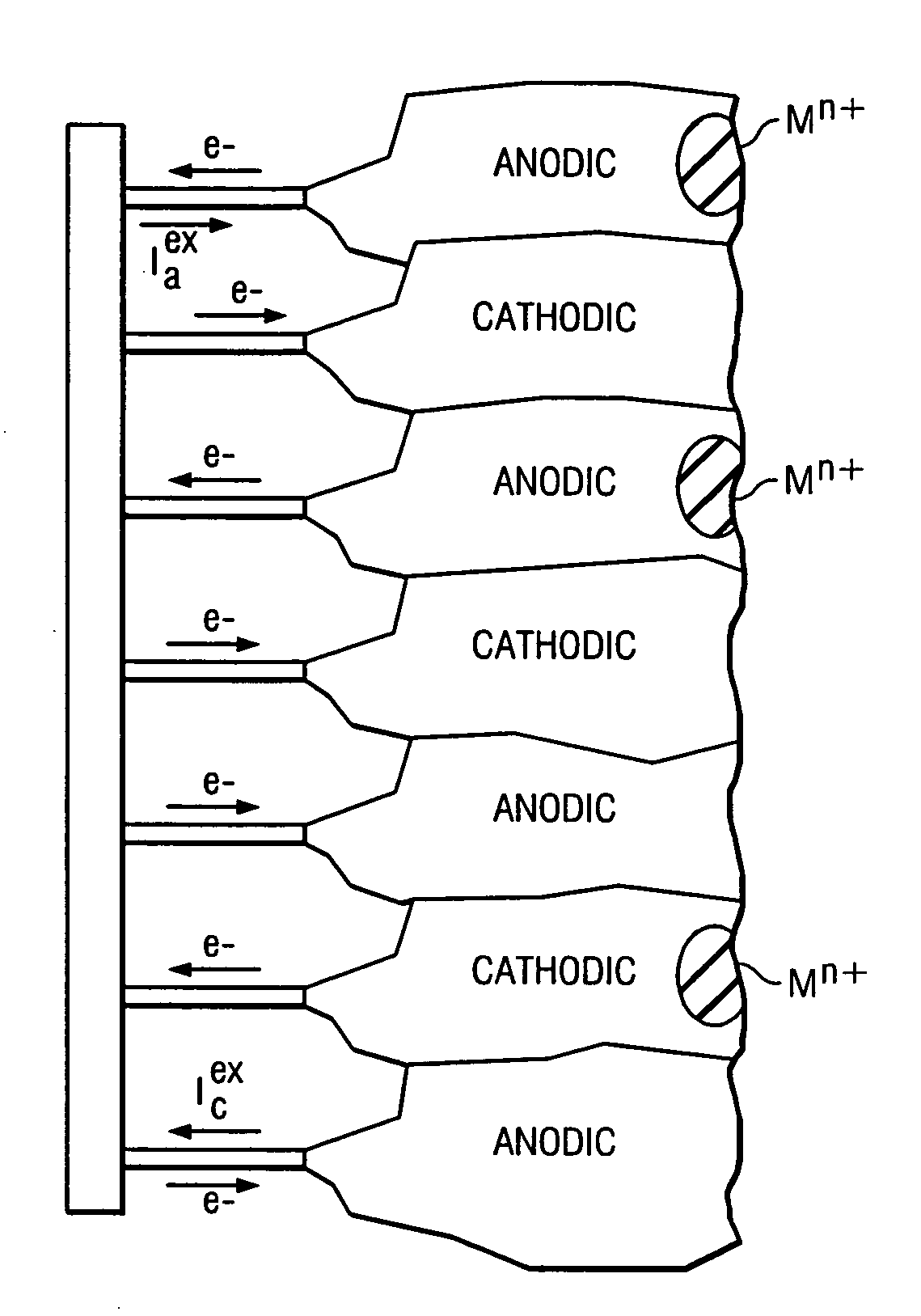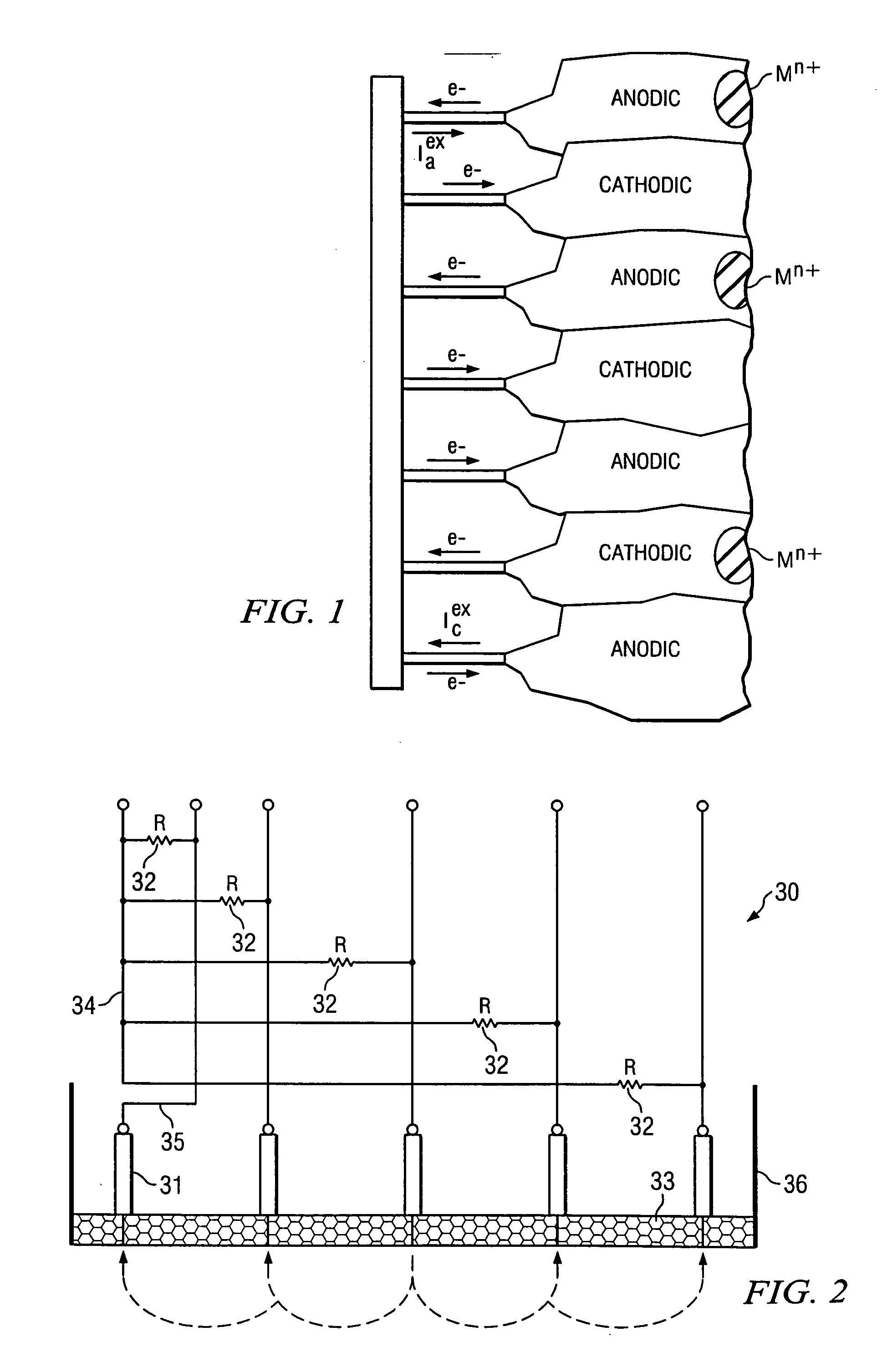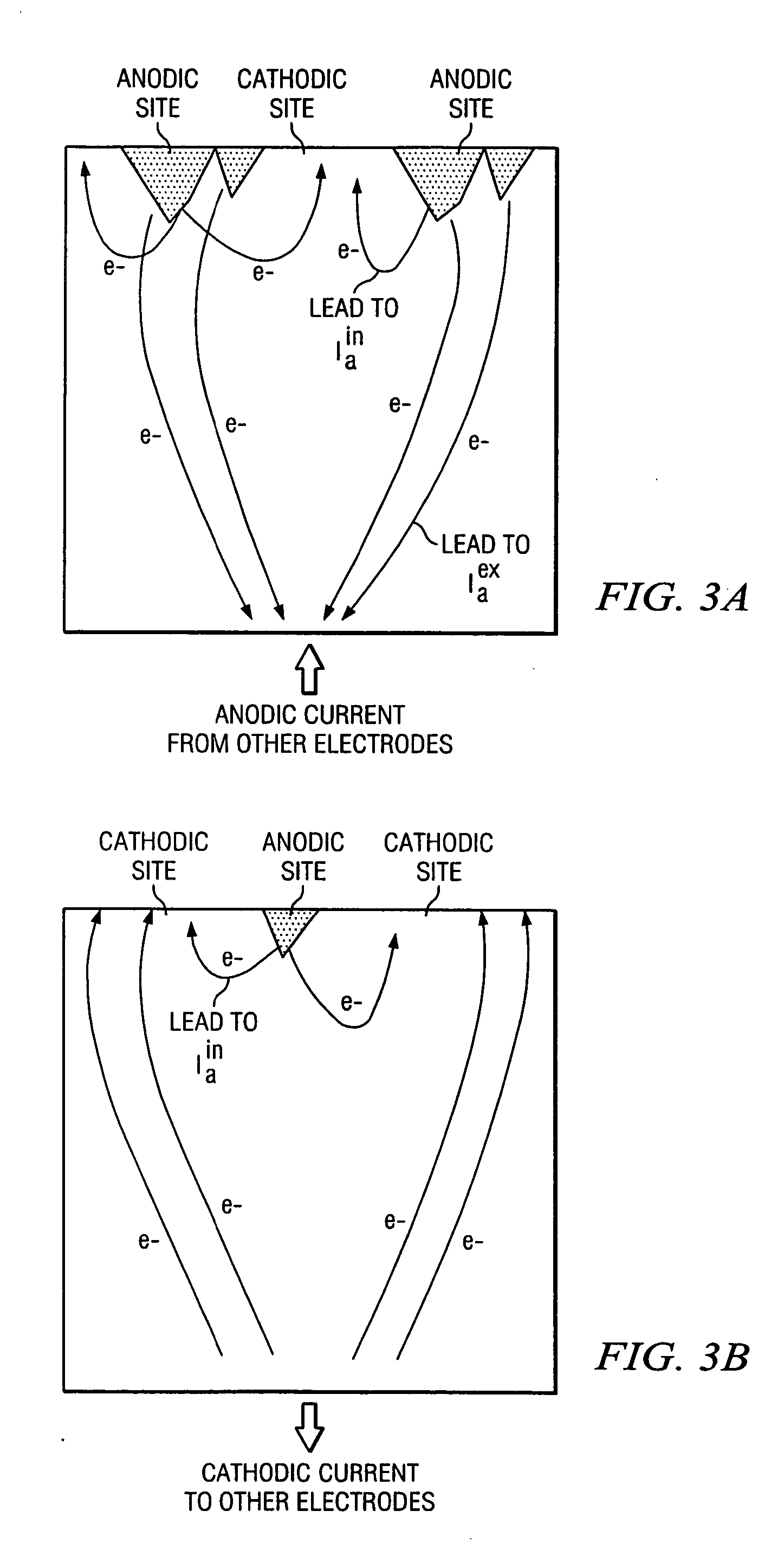Method for measuring localized corrosion rate with a multi-electrode array sensor
a multi-electrode array and sensor technology, applied in the direction of liquid/fluent solid measurement, material electrochemical variables, instruments, etc., can solve the problems of not being able to accurately detect corrosion rate and local corrosion of anodic sites
- Summary
- Abstract
- Description
- Claims
- Application Information
AI Technical Summary
Problems solved by technology
Method used
Image
Examples
Embodiment Construction
[0014] Overview
[0015] As stated in the Background, U.S. Pat. No. 6,132,593 and U.S. Pat. No. 6,683,463 each describe types of multi-electrode array sensors for monitoring localized corrosion. In particular, the latter array has been tested extensively using carbon steels, stainless steels, and nickel-base alloys as probe elements in cooling bacteria, under salt deposits, concentrated chloride solutions, and a process stream of a chemical plants. It has been demonstrated that the sensor is highly sensitive to the corrosiveness of the environments for localized corrosion.
[0016] Quantitative prediction of the penetration rate of localized corrosion involves the assumption that there is no current that flows internally on the most corroded electrode. This assumption may be true or close to reality if the environment is highly corrosive and some of the sensor electrodes are severely corroded. However, for a less corrosive environment, or during the early stages of corrosion when no ele...
PUM
 Login to View More
Login to View More Abstract
Description
Claims
Application Information
 Login to View More
Login to View More - R&D
- Intellectual Property
- Life Sciences
- Materials
- Tech Scout
- Unparalleled Data Quality
- Higher Quality Content
- 60% Fewer Hallucinations
Browse by: Latest US Patents, China's latest patents, Technical Efficacy Thesaurus, Application Domain, Technology Topic, Popular Technical Reports.
© 2025 PatSnap. All rights reserved.Legal|Privacy policy|Modern Slavery Act Transparency Statement|Sitemap|About US| Contact US: help@patsnap.com



